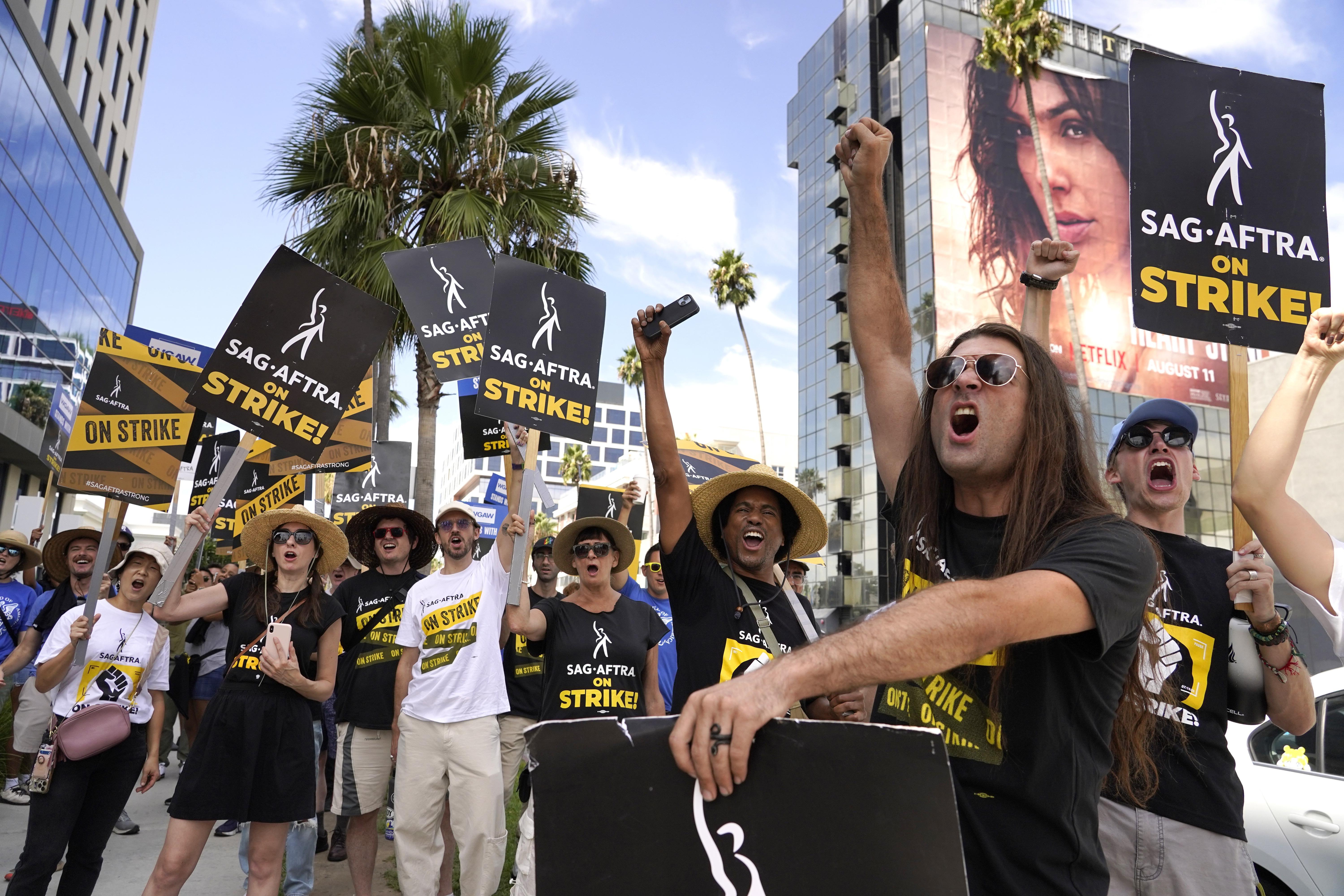 SAG-AFTRA member John Schmitt (second from right) and others carry signs on the picket line outside Netflix, Sept 27, 2023, in Los Angeles. (PHOTO / AP)
SAG-AFTRA member John Schmitt (second from right) and others carry signs on the picket line outside Netflix, Sept 27, 2023, in Los Angeles. (PHOTO / AP)
LOS ANGELES - Negotiators for striking Hollywood actors resumed contract talks on Monday with representatives of major studios, television networks and streaming services, marking the first time the two sides have returned to the bargaining table since mid-July.
Renewed talks between the SAG-AFTRA actors union and the Alliance of Motion Picture and Television Producers (AMPTP) came eight days after the producers clinched a separate contract deal with Hollywood writers, who launched their own strike on May 2, about 10 weeks before the actors.
ALSO READ: Hollywood silenced, echoing across nation
"SAG-AFTRA and the AMPTP met for a full day bargaining session and have concluded," the two sides said in a joint statement at the end of the day. It said negotiations would resume on Wednesday.
No further details were immediately available. Both sides agreed to observe a news "blackout" during their talks.
In the area of artificial intelligence, actors want to protect their images and work from being replaced by computer-generated "digital replicas"
The tentative accord reached Sept 24 between the producers and the 11,500-member Writers Guild of America not only paved the way for ending their labor dispute three days later, but it could serve as a template for settling the actors' strike.
READ MORE: Hollywood studios offer actors $1b in gains before strike
SAG-AFTRA, Hollywood's largest union, representing 160,000 television and film performers, walked off the job on July 14 demanding higher base wages and residual pay from streaming TV as well as restrictions on the use of artificial intelligence (AI) in entertainment.
The same issues were at the center of the writers' strike.
In the area of artificial intelligence, actors want to protect their images and work from being replaced by computer-generated "digital replicas."
READ MORE: Actors, Hollywood battle over AI digital doubles
At the same time, they are seeking compensation that reflects the value they bring to the relatively new frontier of streaming, specifically in the form of revenue sharing.
Other demands from actors include limits on self-taped auditions used in casting, which they argue are more costly to them than in-person readings. They also demand assurances of greater racial equity on the set, including the provision of hair and makeup artists capable of working with varied hair textures and skin tones.
The resumption of contract talks between the actors and studios also coincided with network television's late-night hosts - Jimmy Fallon, Stephen Colbert, Seth Meyers and Jimmy Kimmel - bringing their shows back to television on Monday. Comedian John Oliver returned to HBO's "Last Week Tonight" on Sunday.


